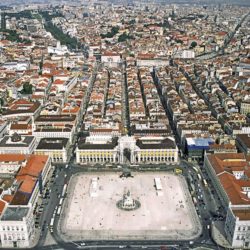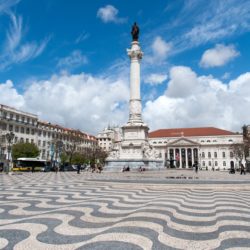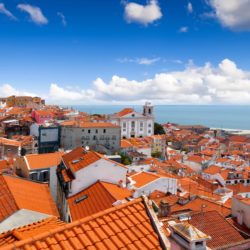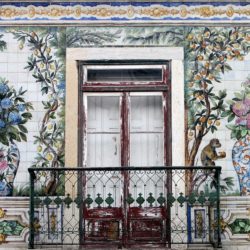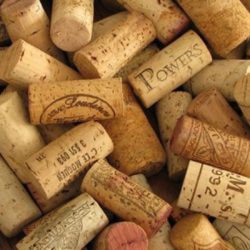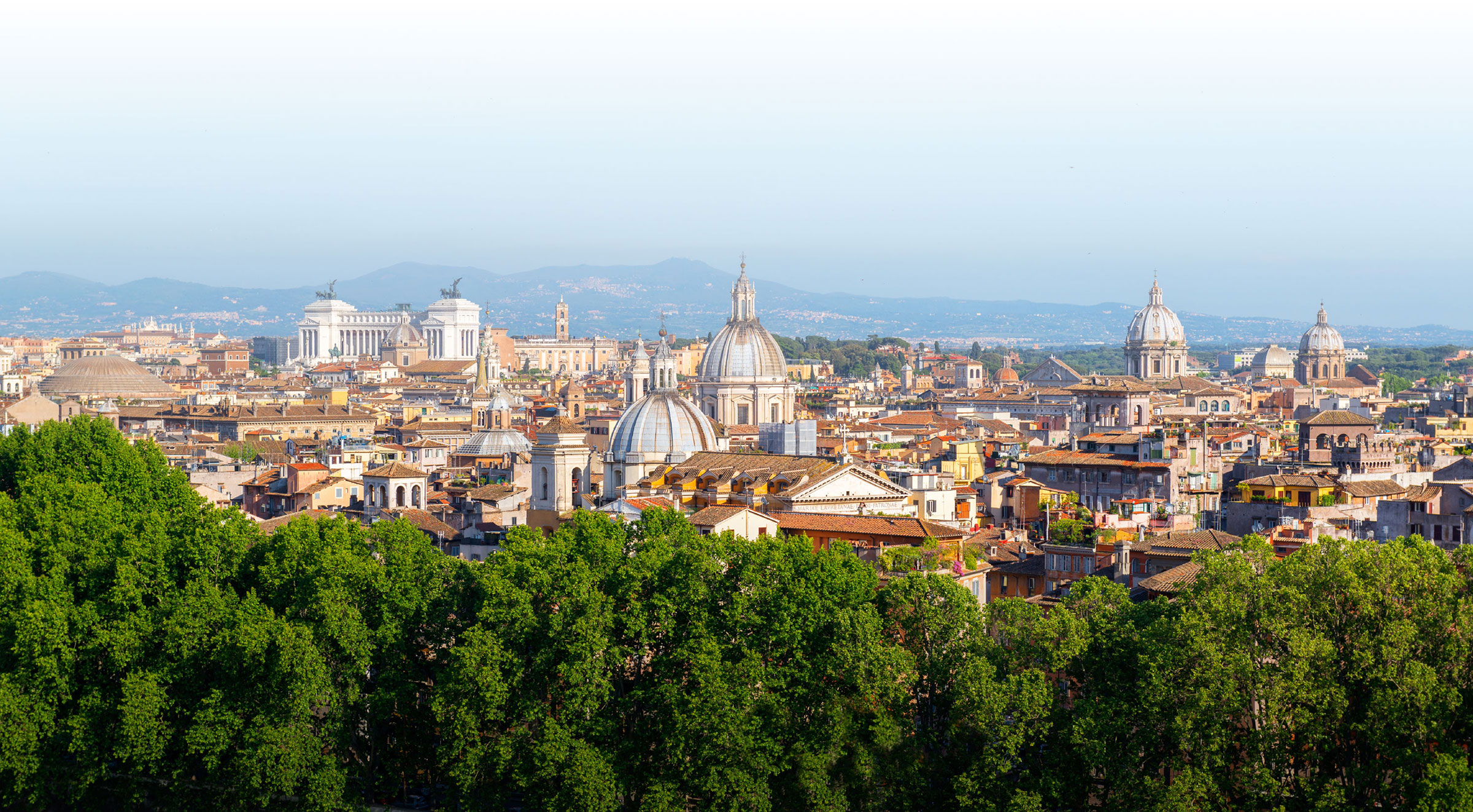Portugal
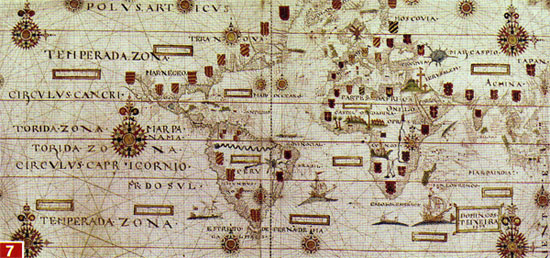
So small (about the size of Indiana), yet so important on the world stage. With its coast on the Atlantic the country would change the balance of power in Europe by exploring Africa, South America and the entire Indian Ocean.
The Portuguese mastered the craft of building sea going vessels that could survive the Atlantic storms and multiyear voyages. The country initially became wealthy dominating the African slave trade but became one of the richest countries when it established a link to the spices of India.
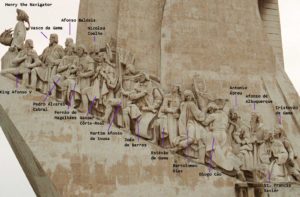 Learn about the men like Vasca de Gama that suffered incredible hardships in search of fame and fortune. The leadership qualities necessary to conquer and control the trade route to and from India – Albuquerque. Consider the navigational expertise necessary and discipline to maintain order on a ship 100 feet long for months at a time and years away from home. Managing the power struggle between the Captain, Noblemen and representatives from the Church. Each writing letters back to the King.
Learn about the men like Vasca de Gama that suffered incredible hardships in search of fame and fortune. The leadership qualities necessary to conquer and control the trade route to and from India – Albuquerque. Consider the navigational expertise necessary and discipline to maintain order on a ship 100 feet long for months at a time and years away from home. Managing the power struggle between the Captain, Noblemen and representatives from the Church. Each writing letters back to the King.
An extremely hilly country lives off what their fishermen can catch. A climate perfect for growing grapes, oranges and other fruits, Portugal is known for its Port wine. A sweet after dinner drink exported all over the world. It is also home to cork trees that produce cork used to keep the wine in the bottle. Learn the nuances of producing port and the process of making the cork from shaving portions of the trees every 7 years, boiling the bark, etc.. 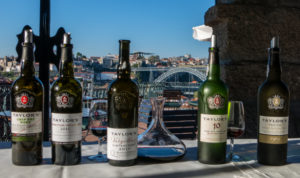 Primarily used in the wine industry, cork producers, almost humorously, are trying to come up with alternative uses in products such as hats, handbags, shoes, etc to generate demand for cork. Especially as the wine industry experiments with screw tops and plastic corks thus reducing demand.
Primarily used in the wine industry, cork producers, almost humorously, are trying to come up with alternative uses in products such as hats, handbags, shoes, etc to generate demand for cork. Especially as the wine industry experiments with screw tops and plastic corks thus reducing demand.
Ask about the Portuguese 12 string guitar and the love they have for Fado music sung in small cafes without the help of electric amplification. Taste their famous Cherry liquor offered in a chocolate cup – Cinja. 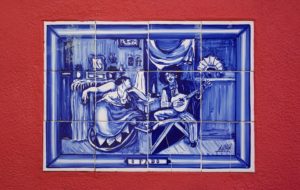
Early on, the wealthy began decorating their houses with richly colored tiles making the neighborhoods colorfully vibrant. The traditional orange tile roofs dominate the sky line.
Portugal has a special relationship with the English exporting port and importing cod fish – a favorite in Portugal even though it is not native to the sea around Portugal. The two countries signed a treaty in 1636 which is still honored today. A traditional family meal includes a slow cooked suckling pig with potatoes and vegetables.
There are 1,000-year-old fortresses to visit as well a one hundred year old fairy tale castle that inspired Walt Disney. 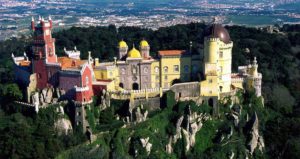
The Portuguese are dark haired olive completion, generally fit given their diet and amount of walking they do. Today, as a result of the recent 40 years of fascist rule, the country is economically challenged which makes it one of the most affordable European places to visit.
Portugal is an enigma. Surrounded by Spain with no natural barriers, it is odd that this country of 10 million people has remained independent. One can drive the entire country north to south in 5 hours and east to west in 2 hours.
Politically, Portugal has experienced almost every kind of government- Monarchy, Dictator, Foreign rule, and today Republic. Impressively, this little country in the late 1400’s changes the course of mankind by sailing south along the coast of Africa. Initially, their ships would carry slaves to markets all over the Mediterranean. Sailing further south it ultimately successfully rounded the southernmost tip of Africa where they captured Arab ships providing pilots who would take them to the Indian ports. The valuable spice trade from India was controlled by the Venetians who were buying from the Arabs who were buying from the markets of India. By rounding the southern tip of Africa, little Portugal would break the Venetian monopoly and create great wealth in Portugal. It also successfully colonized Africa and islands in the Pacific.
With Spain and Portugal both planting their flags in so many new areas they ultimately had to agree on where each would rule. Since they both answered to the Pope in Rome, the Pope mediated a treaty that drew a line in the Atlantic. Everything west of it belonged to Spain, everything east Portugal. Possibly unbeknownst to the Pope at the time but probably known to the Portuguese, the line he drew gave Portugal the territory that became Brazil.
Wealth from the spice trade changed Portugal from a poor country to a rich one but it would ultimately fall to a Spanish invasion in 1581.
Portugal would ultimately lose its access to resources from colonies and given the ever changing rule of law as the political system changed, the country in recent history has seen very hard economic times.
An easy country to visit, Portugal has a long history to examine, an economy that has seen the best and worst of times, and a shifting political environment. Plan a trip and enrich your child’s education.

